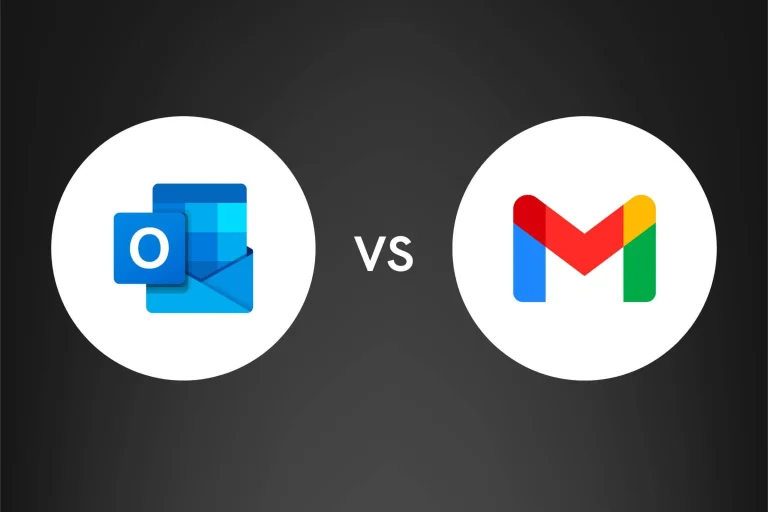Is your website not bringing in the leads or customers you had hoped for? You could be overlooking a key element to success – copywriting and content. We’ll discuss in this article how great copywriting and content can make all the difference in unlocking your website’s potential.
What is Copywriting & Content?
Copywriting is the art and science of persuasion. It’s the act of creating content that will motivate someone to take a desired action, such as making a purchase or signing up for a service.
Content, on the other hand, is the information that you’re sharing with your audience. This can be in the form of blog posts, articles, videos, infographics, etc. Content is meant to educate, inform, and entertain your audience.
Both copywriting and content are important pieces of the puzzle when it comes to driving results from your website. Copywriting helps you convert prospects into customers or leads, while content helps you build relationships and establish trust with your audience.
In today’s online world, copywriting is more important than ever. The average person is bombarded with over 4,000 marketing messages daily, which is only increasing. So you need great copywriting on your website to stand out in this noise.
Understanding Your Audience
It’s no secret that strong copywriting is essential for any website that wants to stand out from the competition. But many business owners don’t realize just how important it is to understand your audience before you start writing.
Who are you writing for? What are their needs and wants? What kind of tone will resonate with them? Answering these questions is crucial to creating content that resonates with your audience and helps you achieve your business goals.
Here are a few tips for understanding your audience:
1. Know who your ideal customer is: This may seem like a no-brainer, but having a clear picture of who you’re writing for is important. If you don’t know your ideal customer, take some time to create a buyer persona. This will help you identify their demographics, pain points, and motivations.
2. Research your competition: Take a look at what other businesses in your industry are doing online. What kind of content are they creating? What tone do they use? What is working well for them? Use this research to help inform your own content strategy.
3. Listen to feedback: Pay attention to what people are saying about your business online. Are there certain topics or areas people seem particularly interested in? Use this feedback to guide the development of future content.
By taking the time to understand your audience, you can ensure that your website’s content is relevant, engaging, and effective.
Benefits of Copywriting & Content
Copywriting and content can do a lot for your website, including helping you rank higher in search engines, driving traffic to your site, and increasing conversions. Here are just a few of the benefits that copywriting and content can provide:
1. SEO Benefits: Good copywriting can help you rank higher in search engines by including keywords and phrases that searchers seek. In addition, well-written content can help keep visitors on your site longer, which is a positive signal to search engines.
2. Drive Traffic: Good content is shareable, meaning it has the potential to be seen by a wide audience beyond just those who visit your website directly. If others share your content, it can help drive traffic back to your site.
3. Increase Conversions: Once visitors are on your site, good copywriting can help persuade them to take the next step, whether signing up for a newsletter, downloading a white paper, or purchasing.
How to Create Engaging Content
Assuming you want tips for creating engaging content:
- Write headlines that are clear and interesting and make use of rich keywords.
- Find new and interesting ways to discuss common topics in your industry to keep things fresh.
- Always keep your target audience in mind and ensure your language is appropriate.
- Use strong calls to action throughout your content to encourage readers to take the next step, whether it’s signing up for a newsletter or visiting a landing page.
- Use images, infographics and videos whenever possible to break up text and add another dimension to your content.
- Pay attention to your content’s overall layout and design – it should be easy on the eye and easy to navigate.
- Regularly measure the performance of your content using analytics tools so you can identify what’s working well and where there’s room for improvement.
Tips for Creating Compelling Copy
Copywriting is the art of persuasion, and the good copy can be the difference between a website that falls flat and one that engages its visitors. Here are some tips for creating compelling copy for your website:
Keep it focused
Your website’s copy should be clear and to the point. It should answer the visitor’s questions and address their needs. Try to cram only a little information into one page – focus on quality over quantity.
Write for your audience
Who is your target audience? What do they want to know? Write your copy with them in mind, and you’ll be more likely to engage them.
Make it visual
People are more likely to engage with visuals than text alone. Use images, infographics, and videos to break up your text and add interest to your pages.
Use calls to action
Your call to action is what you want the visitor to do next – whether it’s subscribing to your newsletter, downloading a free eBook, or making a purchase. Make sure your call to action is clear and visible, and make it easy for the visitor to take action.
By following these tips, you can write copy that engages your visitors and helps you achieve your business goals.
How to Optimize Your Website’s Content for SEO
Your website’s content is one of the most important elements in search engine optimization (SEO). The text on your website needs to be well-written, keyword-rich, and informative to rank highly in search engine results pages (SERPs). Here are some tips on how to optimize your website’s content for SEO:
1. Use keyword-rich titles and descriptions.
Ensure your website’s titles and descriptions contain the keywords you want to target. This will help your website rank higher for these keywords in SERPs.
2. Use keyword-rich headings and subheadings.
When writing content for your website, use keywords throughout the text, including in headings and subheadings. This will help break up your text and make it more readable while also helping your website rank higher for those keywords.
3. Optimise your images with alt tags.
Include relevant keywords in the alt tags of any images on your website. This will help search engines index your images, leading to higher rankings in image search results.
4. Use internal linking.
When adding links to other pages on your website, use relevant keywords as anchor texts. This not only makes your content easier to read but can also help search engines understand the context of the page, which can boost its rankings.
5. Use outbound links.
Link to other high-quality websites in your content. This can help improve your website’s credibility and authority, leading to better rankings in SERPs.
By following these tips, you can optimize your website’s content for SEO and increase its visibility in search engine results pages.
Measurement Strategies for Tracking Results
There are many ways to measure the results of your copywriting and content marketing efforts. Here are some key metrics to track:
- Traffic: how much traffic is your website getting? This can be tracked using Google Analytics or other web traffic tracking tools.
- Leads: how many leads are you generating from your website? This can be tracked using contact forms, online chat, or other lead-capture methods.
- Sales: how many sales are you generating from your website? This can be tracked using online sales trackings tools such as e-commerce platforms or third-party sales reporting services.
- Engagement: how engaged are users with your website content? This can be tracked using Google Analytics or other web engagement tracking tools.
Conclusion
Copywriting and content are essential tools for any website. It can help you build relationships with visitors, engage them better, and convert more leads into customers. Having the right copywriting and content strategies in place will ensure that your website reaches its full potential by making it easier to find new customers, increase engagement levels, and keep users returning. So take the time to invest in quality copywriting and make sure your website is ready to drive success for your business!
















